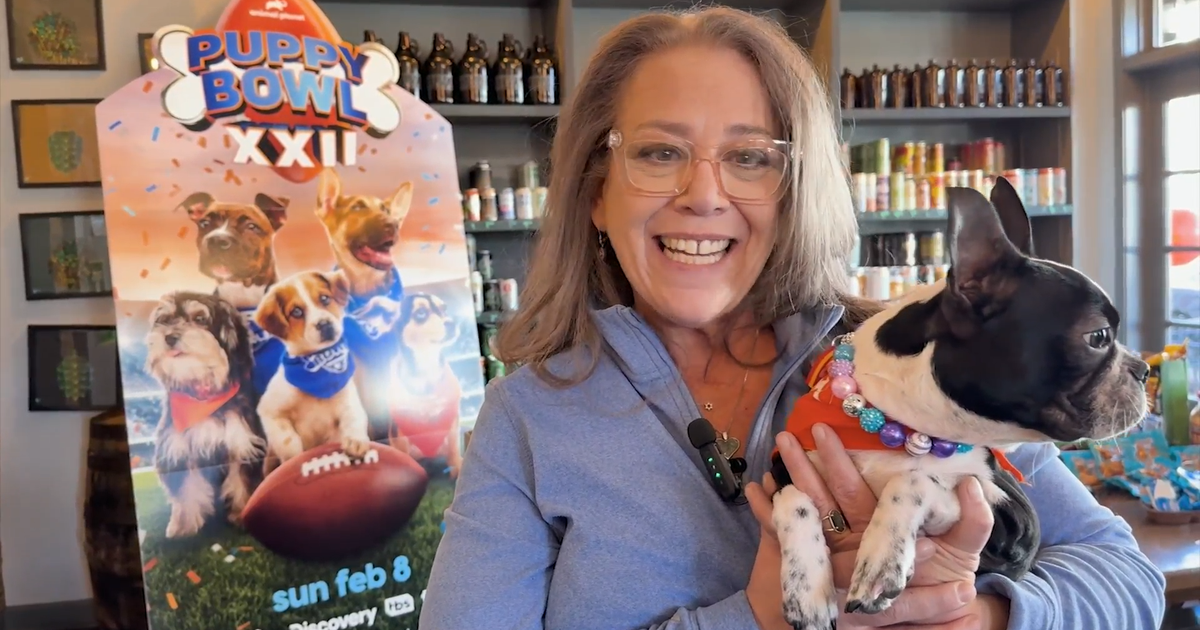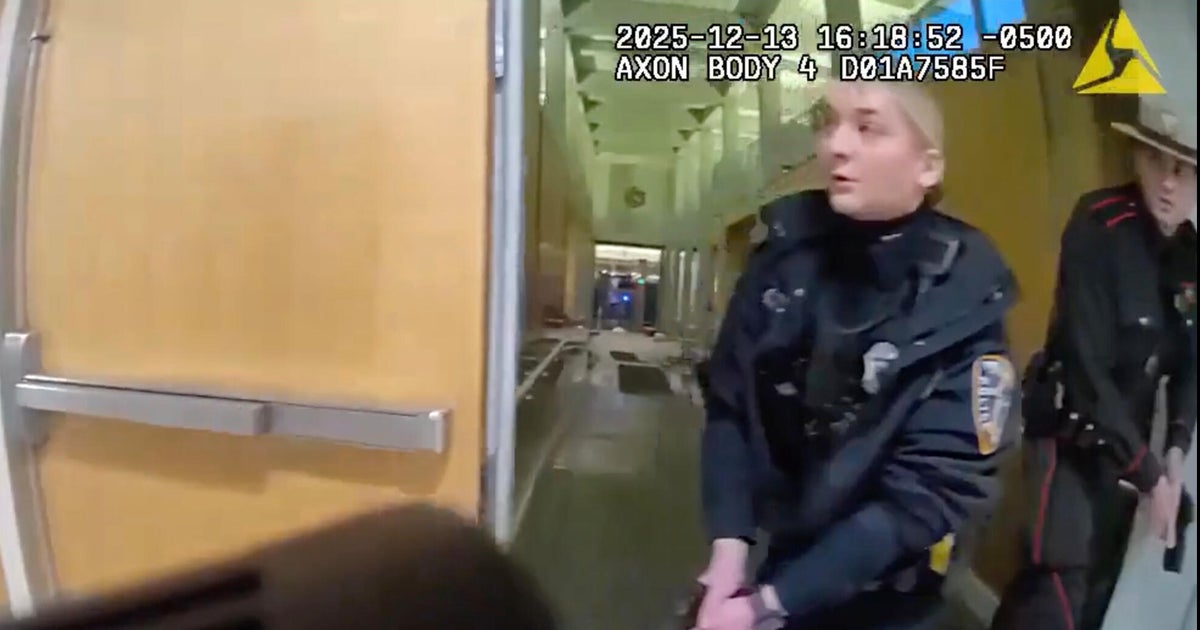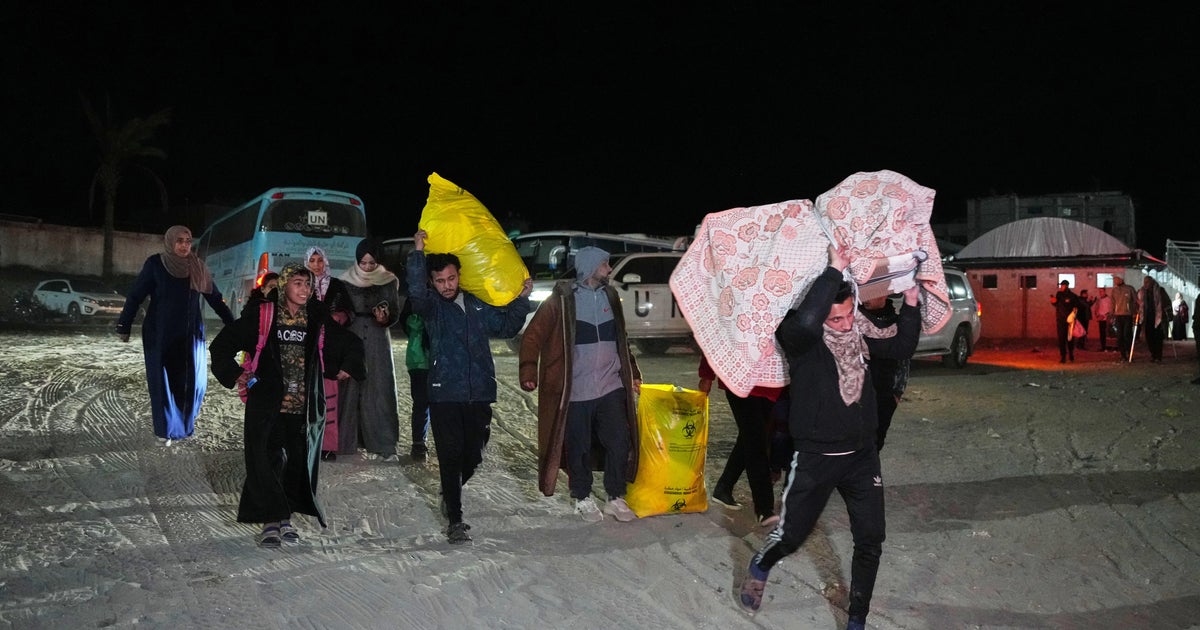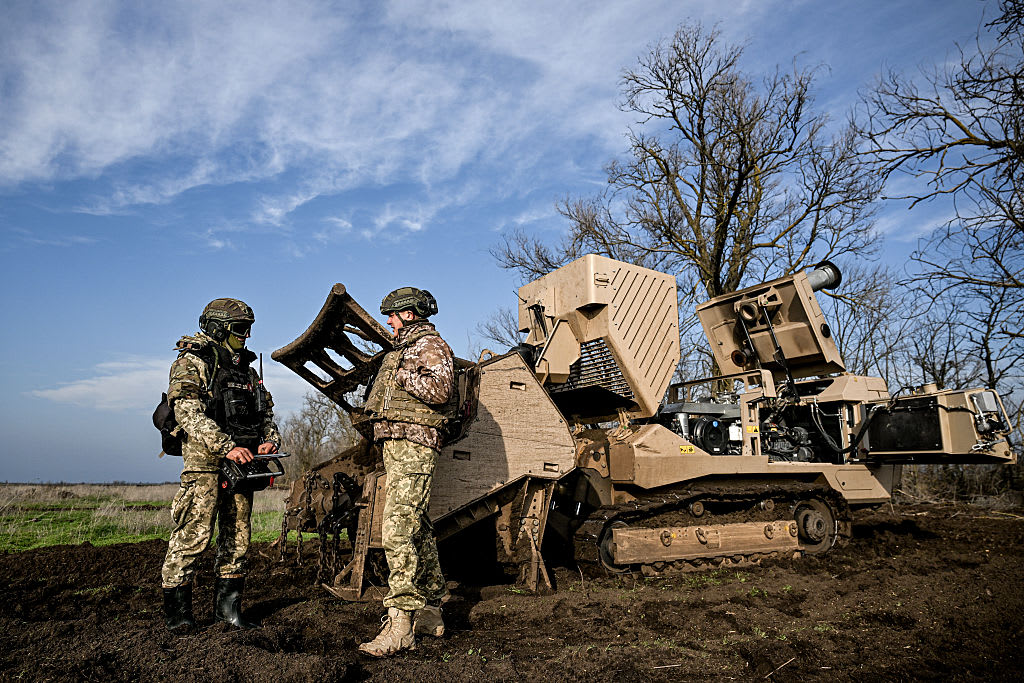Makeshift shelter at Ukraine-Poland border takes in pets stranded in war
As millions of people flee Ukraine as the war rages on, many pets and animals have been stranded in the rush for safety. A German organization has set up a shelter at the Ukraine-Poland border to help.
Sonja Mortensen-Dissing, a 53-year-old volunteer from Denmark, told the Associated Press that the volunteers are trying to make the animal as comfortable as they can. All of the animals, she said, are "very traumatized and very stressed" coming from a war zone.
With tears in her eyes, Mortensen-Dissing said the situation is "very hard."
Footage of the shelter shows several large pet cages housing numerous animals. In one cage, three small dogs are seen huddled together, hiding their heads and shaking. These three, volunteers said, "aren't used to humans at all."
"Some of them are street dogs, they have never been in human hands," she said. "Other ones are family dogs that are just left, and sometimes with a letter where they write, 'We hope we can find our dogs and cats again.'"
The volunteers are doing their best to comfort the animals, petting them, playing with them and providing them with essentials.
But providing things such as food and water is not easy. In the war zones, there is no dog or cat food, 35-year-old Sasha Winkler told the AP.
"100 kilometers or so around, nobody is there to bring them food," Winkler said. Along with trying to get their own resources, volunteers are gathering aid that they take to Lviv in western Ukraine. From there, additional volunteers drive food, aid and other essentials to smaller areas that have been affected by the war.
For Winkler, "a life of an animal is the same life as a human." The volunteer is a dog trainer who has six dogs himself, including two from Romania who are "from the streets."
"The only good thing is for the dogs and cats to have an option now, with the war, for a better life," Winkler said.
At least three people, including 26-year-old Anastasiia Yalanskaya, have been killed attempting to deliver dog food to a shelter in Ukraine. On March 4, Yalanskaya and two others were driving to deliver dog food to a shelter where animals hadn't eaten in three days when their car was ambushed by Russian forces, Global News journalist Ashleigh Stewart reported.
Her final Instagram story, posted hours before her deaths, showed Yalanskaya sitting in the backseat of the car, smiling next to the bags of food.
Stewart, who was in touch with Yalanskaya's family, reported that the three volunteers' bodies were found at the home of the father of one of the volunteers who died. The father had asked for Ukrainian military help in taking their bodies, but they were unable to help because of the war, Stewart said, and the family buried the three volunteers in the backyard.



